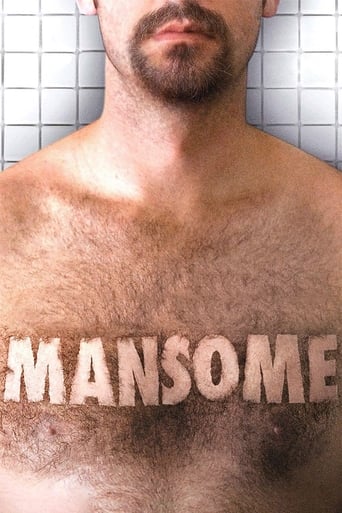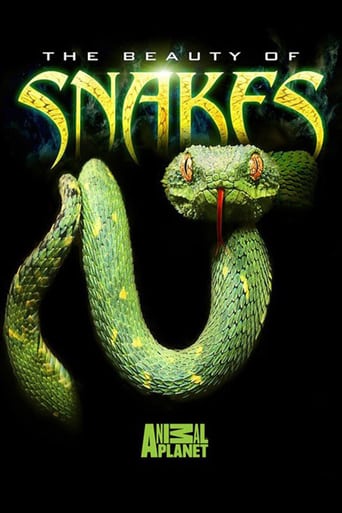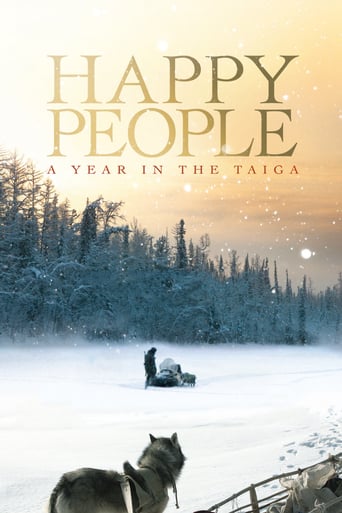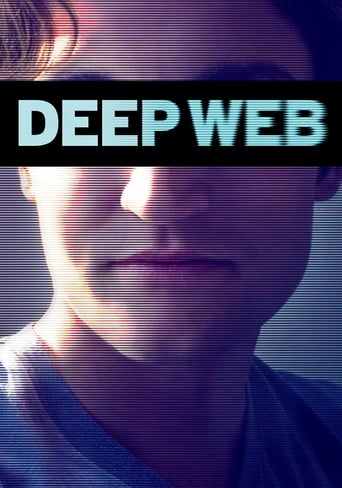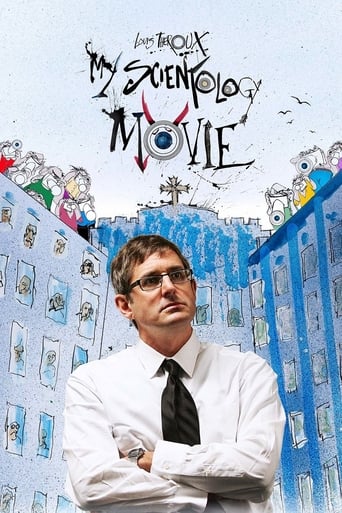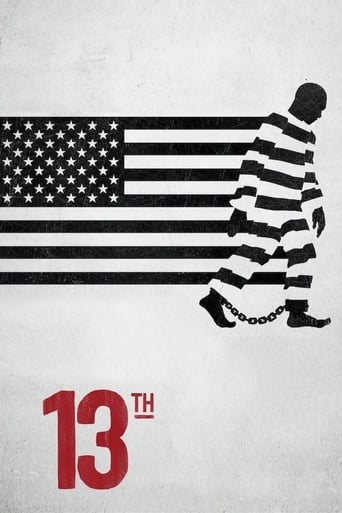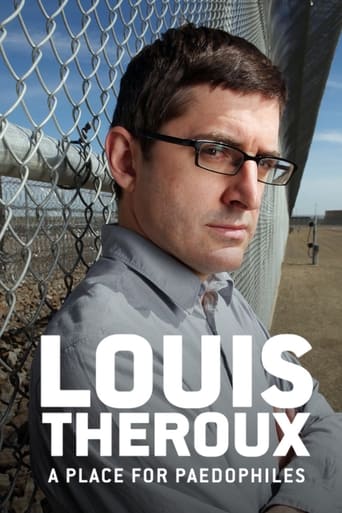


Louis Theroux: A Place for Paedophiles
Louis has gained access to Coalinga Mental Hospital in California, which houses more than 500 of the most disturbed criminals in America, convicted paedophiles. Most have already served lengthy prison sentences, but have been deemed unsafe for release. Instead, they have been sent here for an indefinite time. Spending time with those undergoing treatment, Louis wrestles with whether he can ever allow himself to believe men whose whole history is defined by deception and deceit.
-
- Cast:
- Louis Theroux


Similar titles
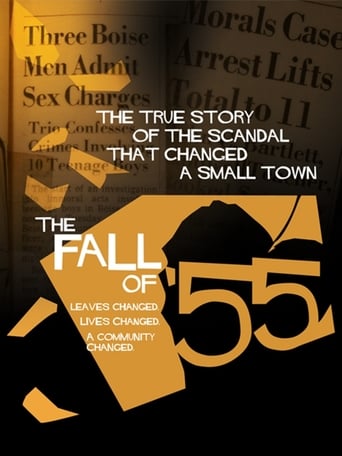
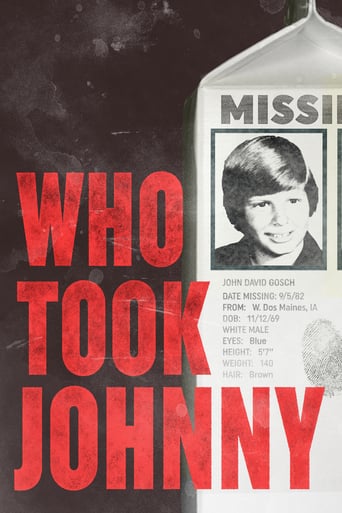
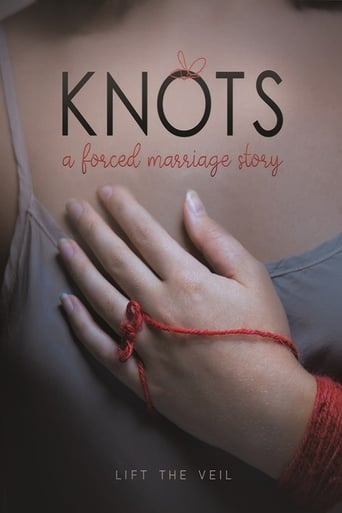

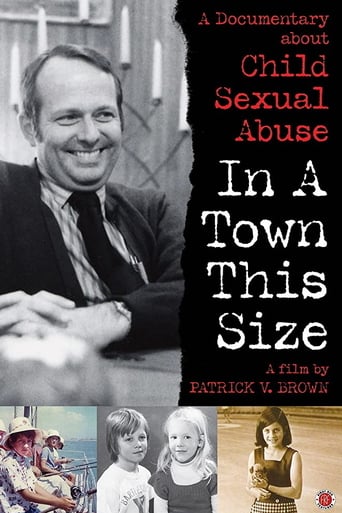
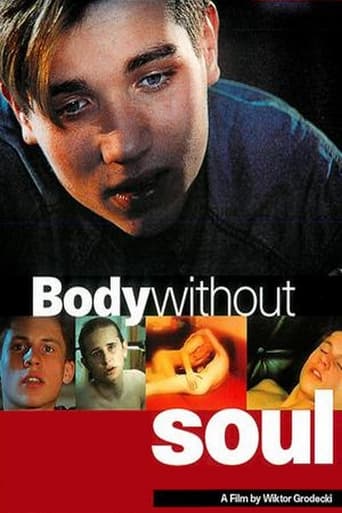

Reviews
Best movie of this year hands down!
This is How Movies Should Be Made
Fun premise, good actors, bad writing. This film seemed to have potential at the beginning but it quickly devolves into a trite action film. Ultimately it's very boring.
After playing with our expectations, this turns out to be a very different sort of film.
I like to think I can go into most subjects with an open mind, but here's one that the majority of us find a little too disturbing.It is thought provoking in terms of is this a condition, a sexual preference, is there any such thing as rehabilitation?It certainly has many cringeworthy moments, along with shouting at the tv moments!
While touching on some of society's most taboo and disturbing issues, Louis Theroux forms a fascinating and eerie look at a mental hospital populated by sex offenders. At first, these sex offenders may seem like fine, slightly creepy individuals. There are points in which Louis is just casually talking with one before asking them what their crime was. "I'm a child molester" they say, and everything seems to go quiet.As the documentary progresses, things seem to get more dark, twisted, and mysterious. Though provoking questions are masterfully crafted through Louis' confused lens. Does society look down upon these offenders too harshly? Can their crimes ever be forgiven? can they be cured of their demented desires? Louis provides these sex offenders with both shock and sympathy. The setting of the mental hospital is painstakingly eerie, and many questions of morality are constantly being brought up. This is a dark and troubling documentary, but a chilling and interesting one nonetheless.
I generally really like Louis Theroux's documentaries and am very glad that he gives time to the subjects that he does.I've given this a seven as it's obviously an extremely contentious topic that is very unlikely to be explored in a proper manner or at all if it wasn't for Louis.I think any psychological issue such as this needs to be fully understood to be able to start dealing with the problem and making progress- firstly for the victims of child molesters, then for the person affected with these desires. That said, "A Place For Paedophiles" did leave me with a lot of unanswered questions.As far as I know, the origin/cause of paedophilia is unknown. This is obviously a massive obstacle in dealing with this issue- we have no idea if it's a sexual orientation, if it's a desire solely caused by abuse or some sort of physical/mental trauma, etc.The title itself didn't seem very clear. A paedophile basically describes someone with a sexual attraction to children (but not necessarily someone who has acted on these desires, i.e a child molester). The fact that this distinction hasn't been made seems unhelpful.I think the distinction should be made because if a person has had these desires for most of their life, they could possibly be categorised as a sexual orientation, which would mean the person has thoughts and desires that are just part of their make up.So even if the paedophile recognises the irreparable damage he/she would inflict on a child by acting on these inbuilt desires and makes sure that he/she never ever does, they are still dammed for having the thoughts and viewed as sex offenders regardless.So all these supposed treatments and strange processes, (such as the PPG to measure sexual arousal from different sources) seemed very dubious. I wish Louis had asked for more information on why this polygraph test is relevant, how the patients' treatment is supposed to stop people's natural bodily reaction to arousal (though SSRI's might do the trick(!) ).I've probably missed out a lot of things I wanted to express here, but oh well. Worth watching, but I think it could have been explored much more fully.
This film is in many ways typical for Louis Theroux. In it he goes into a community or a group of people who are outside of normal life in some way and he interviews them in a manner of being naive and innocent about them; these groups have been racists, religious fanatics, maximum security prisoners, drug addicts and so on. Here though I did feel like he was being brave with his choice of subject. OK not brave in terms of personal safety (as he often is) but more in terms of tackling a subject that is incredibly emotive and one in which even those who view themselves as liberal struggle not to want them harshly punished for their crimes. Paedophiles are generally portrayed in the media as unforgivable monsters who never deserve a second chance – and this is perhaps understandable because generally what they have done is unfathomable and near impossible to emotionally get past.It could in theory have been a witch hunt of revulsion, but it could also have been a film where the paedophiles get treated with a soft touch and gets accused of being too easy on them considering what they have done. What the film actually manages to do is to walk a perfect line of being horrified by what these people did but also being able to look at them as people – not monsters that we should all burn out of their homes in a frenzy of mob hysteria. Louis himself is key to this working because he himself appears to be struggling with disconnecting the what from the who. This again is understandable and there are subjects here who, as he concludes, will simply never get out of this treatment facility alive. Although he doesn't really get "answers" to the challenges, he does do a great job of showing all sides of the problems – the suspicions, the inability to find a "cure", the inability of society to accept paedophiles realised from jail into their community with the comparative ease of accepting (say) a robber who did his time etc. All of these are well covered by the choice of subject interviewed and it did feel aspects of the problem were raised by the different people Louis interviewed.The strongest point for me was masterfully made at the end. Mr Lamb is up for release having voluntarily been chemically then physically castrated and spending 11 years in treatment; Louis has not really spoken about what he did all those years ago and raises this with Lamb. When he is asked why it matters, Louis can't really say much more than "owning up" or "coming clean" – something I agreed with myself, because it doesn't feel "right" that it goes unspoken. However as Lamb says, when can he move on too, when can he be allowed to start fresh having done so much to get to that point. It is a great moment because it perfectly captures the conflict that is about to happen with the community and Lamb – Louis is saying what many of us feel and, while we agree with his feelings, the film also forces us to listen to what this other person in the room is saying, because they sound right too. It is a great moment at the end of the film.This is a very difficult film to watch and indeed there are people in here that are hard to look at because of the crimes described that they did. However it is worth watching because it asks many, many more questions than it even tries to answer and it manages to be honest about the paedophiles while also refusing to paint them as monsters – it keeps them as deeply damaged people, many of whom will die in a treatment facility that might as well be a prison. As uncomfortable and difficult as the subject deserves, but it is still an excellent look at the subject by Theroux.

